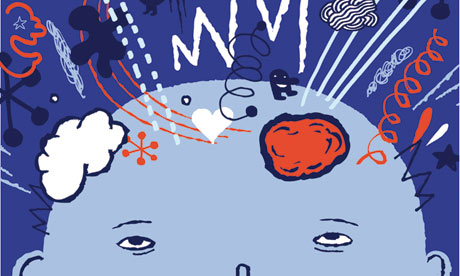
It's a given that the world of pop psychology contains spadefuls of pseudoscience, but as soon as you start reading Michael Gordin's compelling new book, The Pseudoscience Wars, you realise you don't quite know what that word means. Gordin's (anti-)hero is Immanuel Velikovsky, a Russian psychoanalyst who enraged 1950s scientists with his book Worlds In Collision, which claimed we'd got the history of the planet all wrong. (The paperback cover promised "the great scientist-prophet's revelations of cosmic drama!") Velikovsky believed a comet had almost collided with Earth in 1,500BC, causing miracles and catastrophes that historians had written off as myths, like the parting of the Red Sea. But what makes this "pseudoscience"? It wasn't a hoax: Velikovsky believed it. It was an incorrect theory, but science is full of those. Maybe he used unconventional techniques, but if that was deemed unscientific per se, valid new methods might never emerge. "Pseudoscience", Gordin concludes, is mainly a term scientists deploy when their authority is threatened. Science can be good or bad, right or wrong, competent or bumbling. But there's no bright line between the real deal and the "pseudo" kind.
Speaking of which: Deepak Chopra has a new book out, entitled Super Brain: Unleash The Explosive Power Of Your Mind. Normally, this would be nothing to vibrate your chakras about, as Chopra publishes so often and is widely dismissed by sceptical types as being – to quote one – "a firehose of nonsense". But he's uniquely frustrating because of the way his books combine arrant cobblers with smatterings of sense. He's the guy behind Ask The Kabala and "quantum healing", which involves "healing the bodymind from a quantum level" by a "shift in the fields of energy information", and which drives crazy people who actually understand physics; his critics accuse him of selling false hope to the sick. But in Super Brain, co-written with Harvard neuroscientist Rudolph Tanzi, you'll find perfectly sensible tips about learning to meditate, finding meaningful work and the benefits of a Mediterranean diet.
In addition to the science and pseudoscience, though, there's a third strand, and it's trickiest of all: things that don't purport to be science in the first place. When Chopra writes that "you are not your brain" – echoing Eckhart Tolle's "you are not your mind" – he can't properly be accused of pseudoscience. I think that line expresses an arresting notion, but even if you don't, you must admit it's a philosophical claim, not a scientific one. Something similar goes for many books that get classified as "new age": spiritual memoirs, accounts of "inner journeys" in meditation, first-person explorations of the nature of consciousness. Sceptics often dismiss these, along with the crystals-cure-cancer nonsense, as pseudoscientific "woo" – but, in fact, they're just not science. (This is one source of the crossed wires in the debate between atheists and believers: is religion an outdated, crappy form of science, lacking good evidence and rigour, or is it some other business entirely?)
None of this excuses the "vibrational healing" stuff. Chopra deserves everything he gets. (That's quantum karma, or something.) But it's a useful reminder that pseudoscience is murkier than it seems. There's nonsense and wisdom in the new age section of the bookshop. True scepticism entails sifting one from the other. Using the Explosive Power Of Your Mind.
oliver.burkeman@theguardian.com
Follow Oliver Burkeman on Twitter

